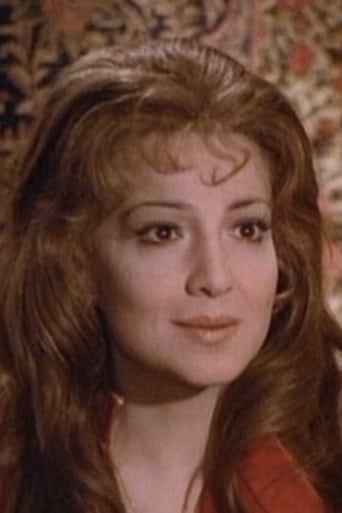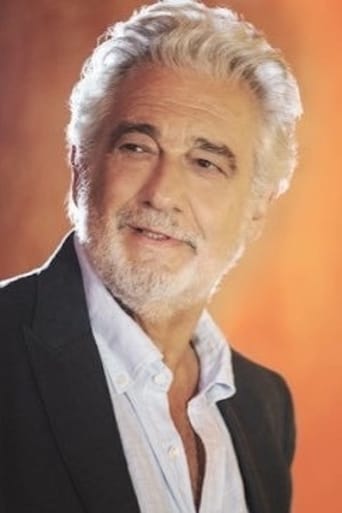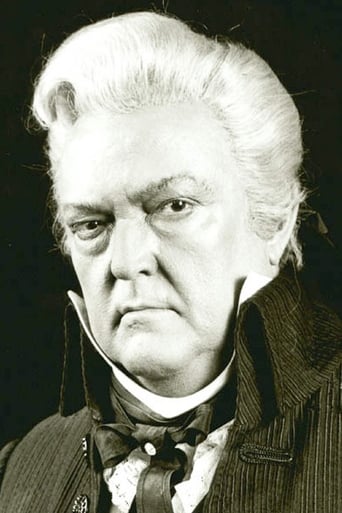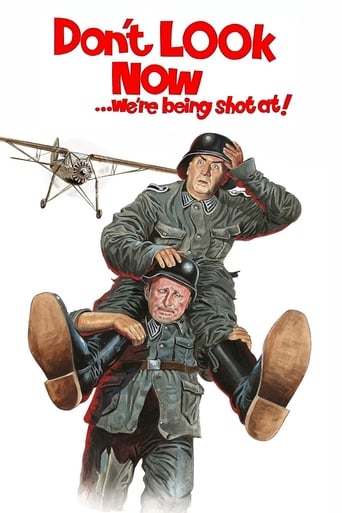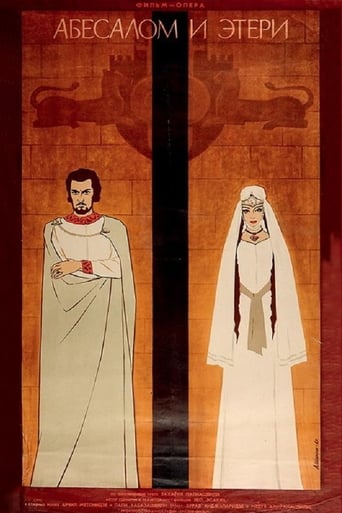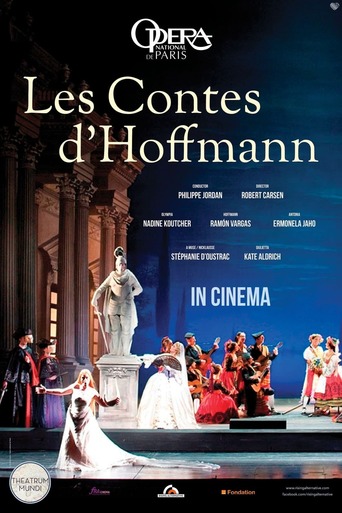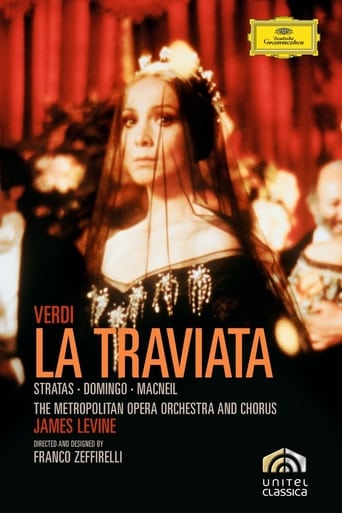
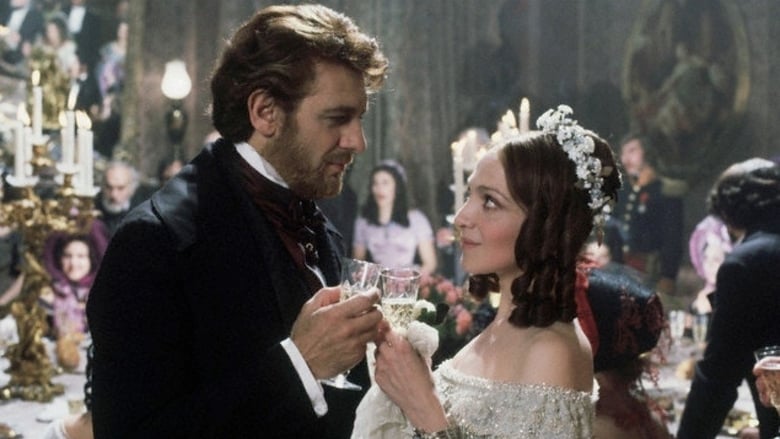
La traviata (1982)
This “Traviata” became one of the most succesful of all opera films, especially in France, where 800,000 Parisian cinemagoers flocked to it in the first six week. It was nominated for two Oscars (for production and costume design) and won BAFTAs in those two categories, as well as receiving BAFTA and Golden Globe nominations as 1983’s Best Foreign-Language Film.
Watch Trailer
Cast


Similar titles
Reviews
Very very predictable, including the post credit scene !!!
Such a frustrating disappointment
what a terribly boring film. I'm sorry but this is absolutely not deserving of best picture and will be forgotten quickly. Entertaining and engaging cinema? No. Nothing performances with flat faces and mistaking silence for subtlety.
By the time the dramatic fireworks start popping off, each one feels earned.
This version of the famous tearjerker La Traviata was just wonderful from beginning to end. The cinematography was stunning, and just as luscious were the costumes and locations, especially the villa outside Paris. The music by Verdi is just superb, no wonder it is one of the most performed operas today, from the prelude of Act 1, Brindisi(which I am sure everybody knows even if they're not into opera), Sempre Libra, Di Provenza to the heart-rending ending and especially the Act 2 duet between Violetta and Germont, it is just delightful, and is bound to bring tears to people's eyes like it did to me. The plot, based on the book by Alexandre Dumas Junior, is not too complicated and easy to follow. The performances are astonishing. Placido Domingo, not only looks the part of Alfredo, but sang and acted a dream, easily up there with Alfredo Krauss, as one of the best tenors playing that particular character. Teresa Stratus was perfection as Violetta. I did worry that her performance was going to leave me cold, but her beautiful voice and outstanding acting ability equalled a real tearjerker of a performance, that was poignant and understated. Cornell MacNeill is not a name I am familiar with, but he certainly shone as Germont, with a fine baritone voice, and good stage presence. Overall, a perfect opera film, that is a real tearjerker. 10/10 Bethany Cox
Director Franco Zefferelli, Stars Placido Domingo, Teresa Stratas, Cornell McNeil, Conductor James Levine and the Metropolitan Opera Orchestra, 1982 The forces behind this masterpiece are responsible for its greatness- Italian director and designer Franco Zefferelli, tenor Placido Domingo, soprano Teresa Stratas and baritone Cornell McNeil. The singers are at the top of their game, Domingo is a young, sexy Alfredo and Teresa Stratas IS Violetta Valery in a performance that even Maria Callas would envy. Zefferelli, who has long claimed he had a friendship with her and in truth he had been behind various opera productions of hers, had Maria Callas in mind when he cast Teresa Stratas. Like Callas, Stratas has a Greek background through her parents though she was Canadian born, has similar looks, has the same type of dramatic voice and she is in Zefferelli's own words "an electrifying actress and soprano of the lyric entertainment". The Callas connection is most obvious when Stratas appears in a black veiled gown in Act 2 at Flora's party where even her hair is similar to Callas' infamous 50's performances.Released in 1982, Zefferelli sought to "convert" people into opera lovers through the lush visual seduction of the cinema. This is exactly what he did. The cinematography of this film kills you with excessive beauty. The opening credits roll as we see scenes of Paris in the Notre Dame Cathedral area and surrounding residential district by the Seine river. The interior of Violetta Valery's mansion, where she hosts the Act 1 party, is luxurious and Zefferelli allows us to be dizzied with the sheer opulence of the house- gilded mirrors, portraits of Violetta, curtains, chandeliers etc. Visually on film we are able to tell things about the characters that stage performances do not, for example as the guests depart from Act 1's party, an old woman steals a silver box from Violetta proving to us that Violetta is not among real friends, these are only fair-weathered friends and bad ones at that. They were not even there for her when she was dying in the finale. Also noteworthy is the cruel trick one has to catch on early on. Violetta and Alfredo are never reunited, as in the opera, but instead his return is a hallucination and she dies alone in her apartment.The beginning of the film has Violetta reminiscing about the better days as a desirable and wealthy courtesan who partied all the time. She is deathly ill and already her house is sold and men are moving her things out. The country scenes are incredibly beautiful as Violetta and Alfredo live happily in seclusion. Alfredo rides his horse and Violetta picks flowers for her greenhouse and feeds her white doves in their big cage. Cornell McNeil's bombastic but fatherly Giorgio Germont is a great support to the refined performances of Domingo and Stratas. The Flora's party scene is exceptional with even more visual beauty as Gypsies and bullfighters dance seductively and professional gamblers enjoy themselves. The closing ensemble is not to be missed and neither is the melancholy and tragic ending. This is the greatest and ultimate version of La Traviata ever made. It is a must have for opera fans and for curious non-opera lovers.
A filmed version of Guiseppe Verdi's opera. It's about a love affair between beautiful Violetta Valery (Teresa Stratas) and Alfredo Germont (Placido Domingo). Their love for each other is torn apart by his father--but she still loves him. It all leads to a tragic end.I saw this in a theatre back in 1982. They tried to play it like an opera. When I walked in the screen was covered by a red curtain (back in those days some of the older theaters still had curtains). As the lights went down the curtain parted and the film began. When the film ended, the curtains pulled back together and the lights came up. My audience applauded even after the lights were up. It gave the feeling of being at a live opera. That can't be recreated at your home but this film is still well worth seeing.Director Franco Zeffirelli wisely did not film the opera as it is staged. He opened it up--this was set up for a film. Sequences take place outside and the inside sets are way too elaborate for an actual opera.The costumes are beautiful and the sets are just stunning--full of color and light. Every moment of this picture is filled with beautiful imagery. It matches perfectly with the singing and the music which are just incredible. There's even a show-stopping matador dance half-way through! I've never seen the opera but I've heard this is very faithful and Stratas and Domingo have beautiful voices and also can act! The only negative here is that Domingo is way too old for his role...but that can be forgiven whenever he sings.This was actually a sizable hit back in 1982. The same team got together a few years later and filmed "Othello". Surprisingly that was TERRIBLE and is a textbook example of how NOT to do an opera! But this one is just great and a must-see. I give it a 10.
A path of education...Art of high achievement influences many eternally and profoundly. Maybe he was not as accomplished as his good old dad, Alexandra Dumas Fils made his own work a classic household name which is well-remembered and appreciated.I first heard about "Cha Fa Nui" (Camille) from the mouth of my mother when I was still an upper primary school girl. To a young Chinese girl, this meant nothing at all but I went to the public library and found that there were many copies with this title translated by Taiwanese. I never finished reading it because the names are too long and the Chinese is too literary, I was bored to death by it. The only thing I remembered was that it was a French novel. Dropped, the book, but not the name.A few years later in the early 80's, Franco Zeffirelli's operatic movie with Chinese title as "Cha Fa Nui" was on show in one and only one movie house, "Palace" at Causeway Bay (demolished!). At that time, this prestigious cinema showed mostly western movies of big names like Gone with the Wind, Casablanca, Dr. Zhivago and so "La Traviata" was one of them.Hong Kong Chinese were then not very familiar with Western culture, the cinema staff had even misplaced Plácido Domingo's name as "Domingo Plácido" on the billboard. I, as a teenager, was a little intimidated by the movie house by its reputation and grandeur. Yet, out of curiosity, in those fearless, carefree and innocent days, imitating the adults with good taste, I bought a ticket to see this movie. And it was a WOW, what an eye-opening experience!The vision, the music, the powerful opera singing, the acting and the poetic cinematography, the wondrous costumes and hairdo, it was an educational adventure to a young life. (So, until now I still don't understand how come the man at one row before me could be sleeping and snoring so annoyingly while his girlfriend/wife/sister was staring hard on the screen without moving her head.) Everything is unforgettable about this movie. The happy time of the lovers that Violetta once fell off into a shallow brook from the narrow wood plank. The histrionic and comical fit of Alfredo when he was struggle to open that fateful letter from Violetta. And the most excruciating of all, I can still feel the deafening horror that the deserted and seriously ill Violetta was standing desertedly in the cruelly empty and stripped big house, letting out piercing shriek of pain.The subsequent episode is an educational search for me: I looked for abridged version of "Cha Fa Nui" in English "Camille" and found out that the names of the original protagonists were Marguerite Gautier and Armand Duval but not those in the operatic adaptation as Violetta Valery and Alfredo Germont. Furthermore, the book inspired Giuseppe Verdi first to make it into an opera but not Franco Zeffirelli's movie.And five years later, I learned some French and so, dared to touched the original "La Dame aux Camélias". Later, I learnt from an Italian lady that the name of Verdi's opera "La Traviata" was derived from an Italian verb "traviare" which means "to mislead", "to lead astray", or "to corrupt". Thus, a "corrupted man" is a "traviato" and so "the fallen woman" or "the corrupted woman" is "La Traviata". And the book has inspired every generation's film-makers or TV producers, so far there are more than forty adaptations. Well, well, well, what a job all through the years.What's more interesting, I once read from an oddly-enough page about the Brits' Prince Charles. It is reported that his favourite opera is "La Traviata", and my eyebrows arched. Of course, his loved one is named "Camilla", and strictly speaking by royal standard, she is a "fallen" (committed adultery + divorced) woman.


